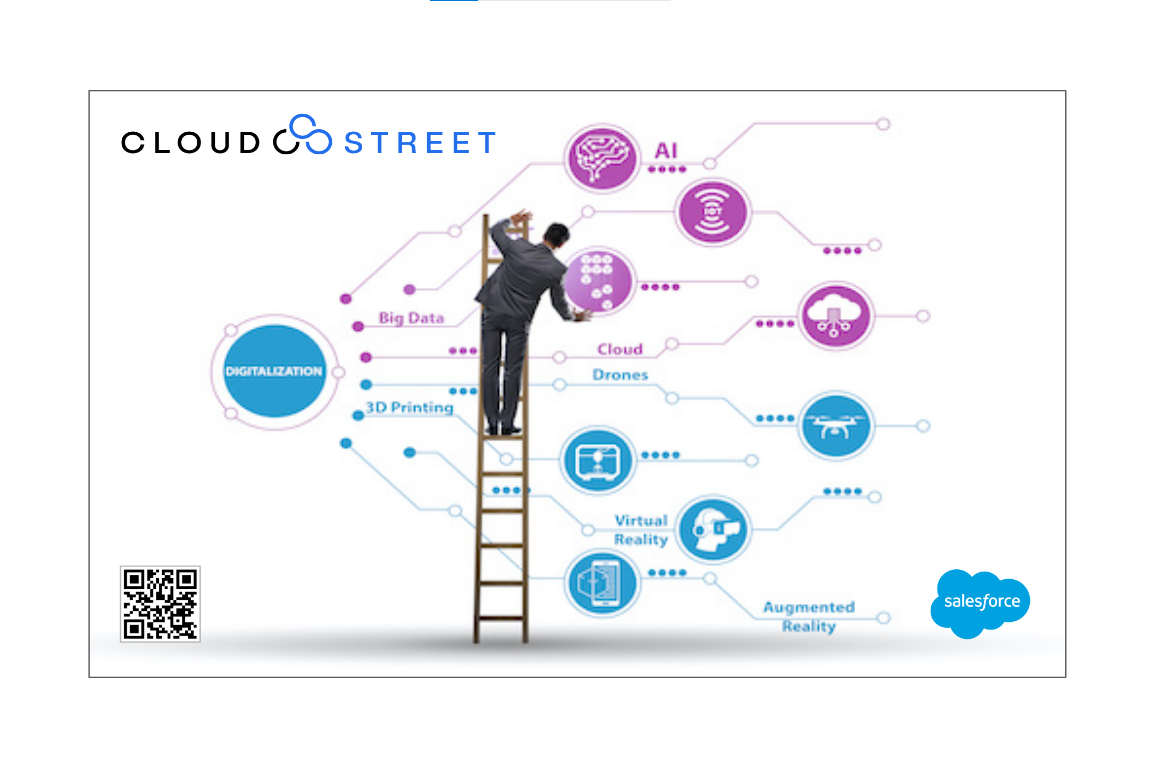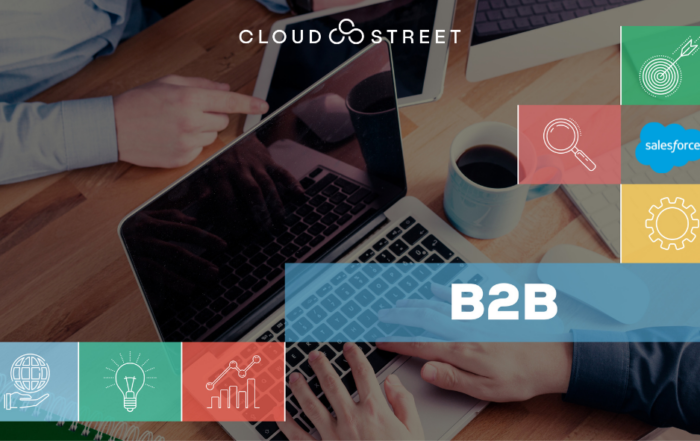Nine Trends Driving Digital Transformation in 2023

Companies must embrace digital transformation to maintain customer relationships and build for the future. When organizations fail to meet customer demands, customers have more choices than ever before and they’re no longer afraid to take their business elsewhere. 70% of purchasers say new technology has made it easier to change providers.
Customer expectations and behavior are changing constantly. To remain relevant, businesses must adapt as well. Here are some of the top trends that are shaping digital transformation in 2023.
Digital Transformation Requires a Holistic Approach
Digital transformation is not an upgrade to your current way of doing business. It’s an investment in changing the way you operate to improve efficiency and meet changing business and market requirements. You can’t just migrate to the cloud and be successful. You need a holistic approach to rethink the way you operate.
Too many companies have taken an ad hoc approach, trying to modernize parts of their IT strategy, yet failing to deliver impactful results.
Investing in Total Experience Strategies
Digital transformation has to improve the environment for both customers and employees. Rather than just focusing on customer experience (CX) and user experience (UX), organizations are also investing in a total experience strategy (TX) to provide an integrated approach that improves operations internally and externally.
Digital transformation must include systems and processes that improve satisfaction for both customers and employees. Gartner predicts that companies providing such a total experience will outperform their competitors by 25% in both customer experience and employee experience (EX).
Increasing Investment in Automation
While digital transformation improves efficiency, automation is key in what improves productivity and reduces costs. When you can implement automation, you can streamline processes, reduce labor costs, and reallocate resources to focus on better customer service.
Digital process automation also reduces human errors and provides operational stability to ensure accuracy. In today’s tight labor market and uncertain economic environment, automation will be key to cost control.
Companies are not only focusing on large-scale automation but also hyper-automation to improve process efficiency. According to research from Gartner, hyper-automation can lower operational costs by as much as 30%.
Injecting AI and ML into Decisioning
Automation is being used not just to streamline processes, however. Organizations are turning to artificial intelligence and machine learning to improve decision-making. Data analytics is increasingly being used to make higher-level decisions, based on deep customer data and AI/ML models.
Using diagnostic, prescriptive, and predictive analytics can augment human decisions by providing data-driven insights and reducing guesswork. 76% of organizations have already made AI and ML a significant priority in building for the future, outpacing other IT investments.
Salesforce, for example, offers an integrated set of AI tools in its CRM to help businesses make better decisions, such as:
Anticipating customer needs
Recognizing emerging trends
Resolving conflicts and process bottlenecks
Personalizing marketing
Finding hidden correlations
Suggesting solutions
Utilizing Low-Code/No-Code Tools
Companies are reducing their reliance on expensive data scientists by enabling low-code and no-code tools. This frees up data engineers to work on higher-level projects while allowing frontline managers and employees to access data more easily.
Low-code and no-code tools allow team members to create dashboards and applications without having to write code. Typically, drag-and-drop interfaces automate processes, allowing for simple and fast creation. This helps democratize data to empower team members throughout the organization.
Data democratization allows individuals throughout the organization to gather and analyze without requiring assistance. This can reveal new opportunities and broaden data-driven decisions without having to tie up precious resources.
Developing Cloud-First Solutions
Migrating to the cloud has significant benefits, including increased speed and access. However, the decisions you make about how to implement and organize your computing resources can make a big difference in the success of your digital transformation. This means more than just moving data to the cloud, but building technical resources to leverage the advantages of the cloud, including:
Scalability
Security
Collaboration
Visibility
Mobility
The majority of companies are investing in both hybrid and multi-cloud solutions. 86% of companies are planning to increase their investment in both strategies.
Hybrid solutions, including both private and public clouds, allow companies the flexibility to segment sensitive data and critical workloads on-premises while leveraging the advantages of the public cloud for other workloads.
Multi-cloud provides increased reliability and redundancy, while also increasing control. It helps avoid vendor lock-in and lets organizations choose the most efficient way to store and process data. Multi-cloud and data fabric overlays are an effective way to mitigate expensive data egress fees, allowing organizations to allocate compute resources cost-efficiently.
Focusing on Cybersecurity
As more resources migrate to the cloud and more employees work remotely, the number of potential threat vectors has increased dramatically. With increasing investments in edge technology and distributed architecture, organizations will need to significantly up their game to mitigate threats.
In the third quarter of 2022, more than 108 million accounts were breached, an increase of 70% over the previous quarter. With the average cost of a data breach in the US now exceeding $9.4 million, companies must double down on cybersecurity.
Building Sustainability
As investors, stakeholders, and customers are increasingly focusing on Environmental, Social, and Governance (ESG), companies are also making decisions with an eye toward sustainability in 2023. A study of IT leaders in companies with 1,000 employees or more reported that 90% of those surveyed say sustainability is one of their top objectives.
Sustainability is also increasingly becoming a deciding factor in recruiting and retaining top-quality talent. More than three-quarters of job seekers say they would be unlikely to accept a position with a potential employer that doesn’t have the plan to improve sustainability.
Working with Digital Transformation Partners
Another trend is that companies are increasingly turning to partners to help with digital transformation. Why? Eight out of 10 digital transformations fail to achieve their objectives. Despite the importance of the transformation, companies are often limited in their resources, commitment, or budget to properly guide and implement the solutions they need.
For example, many organizations have embraced Salesforce as their CRM to streamline sales, marketing, and support. However, many also fall short in optimizing the software to maximize effectiveness. A digital transformation partner can help manage the implementation and optimization process for a smoother, faster transition.
A Certified Salesforce Implementation Partner
Research from Salesforce reveals that nearly 60% of customers say it is essential for companies they buy from to be innovative. Are you keeping up?
CLOUDSTREET is a certified Salesforce Implementation Partner, offering Salesforce optimization and customization to help you meet and exceed your digital transformation goals. CLOUDSTREET has implemented B2B stores for manufacturers in consumer goods, IT services, industrial sectors, and more.
Want to supercharge your digital transformation with Salesforce? Contact CLOUDSTREET today.
Discover insights that drive results - explore out latest blog posts now
Unlocking B2B Success with Salesforce Experience Cloud
Unlocking B2B Success with Salesforce Experience Cloud In today’s [...]
Future-Ready: How AI is Shaping the Mid-Market Manufacturing Landscape
Future-Ready: How AI is Shaping the Mid-Market Manufacturing Landscape [...]
Drowning in Data? Get Expert Data Entry Help for Only $9/Hour!
Data overload slowing you down? Spending too much valuable [...]


